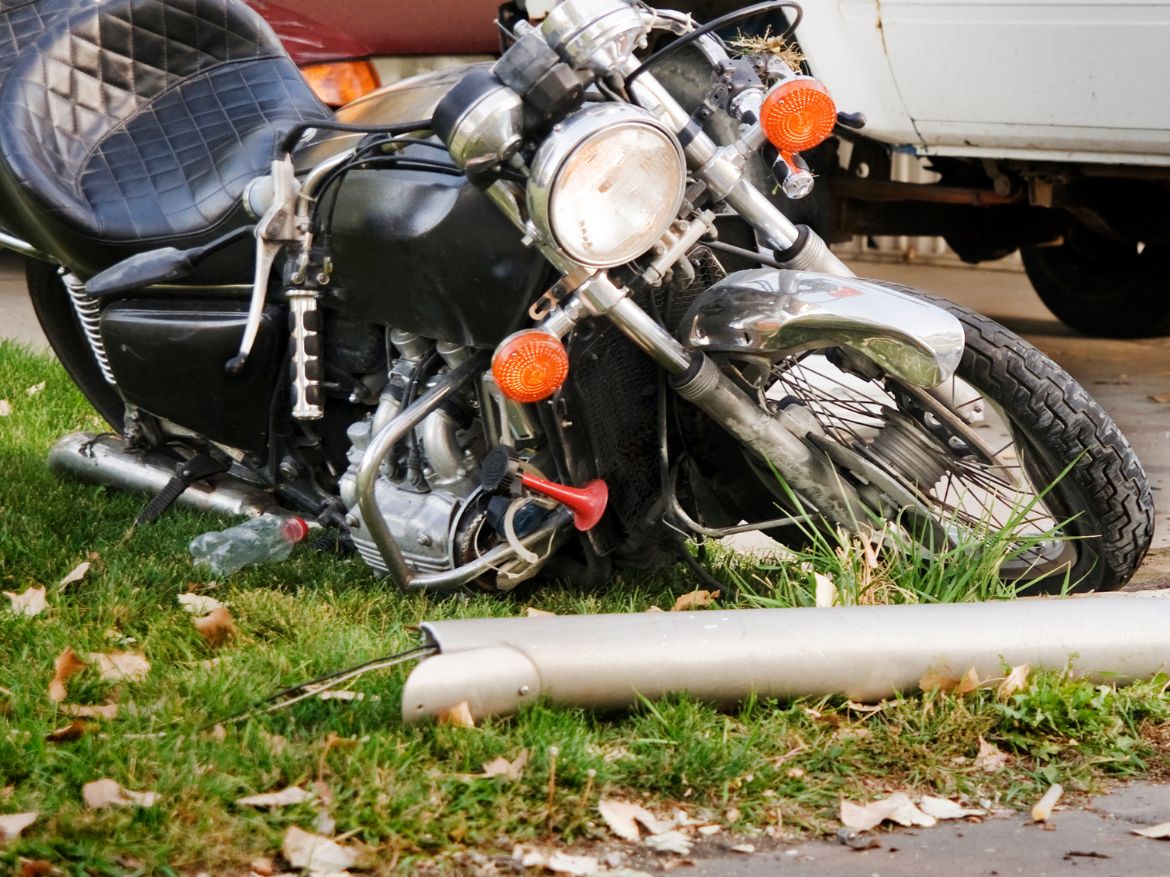
How Can a Lawyer Help After a Motorcycle Accident?
Motorcycle accidents can be devastating, leading to severe injuries, costly medical bills, lost wages, and emotional distress. Unlike car accidents, motorcycle crashes often result in more significant injuries due to the lack of protection for riders. If you have been involved in a motorcycle accident, hiring a lawyer can be one of the most crucial steps toward securing fair compensation and protecting your rights.
An experienced motorcycle accident lawyer can navigate the legal complexities, negotiate with insurance companies, and build a strong case on your behalf. Below, we explore how a lawyer can help after a motorcycle accident and why legal representation is essential for achieving the best outcome.
1. Investigating the Accident and Gathering Evidence
Proving fault in a motorcycle accident case requires a thorough investigation and substantial evidence. A lawyer can:
- Collect police reports and witness statements: These documents help establish facts and determine fault.
- Obtain traffic camera or dashcam footage: Video evidence can provide undeniable proof of how the accident occurred.
- Analyze accident scene photos: Images of vehicle positions, skid marks, and road conditions can support your claim.
- Work with accident reconstruction specialists: Experts can recreate the accident to clarify liability.
- Gather medical records to document the extent of injuries: These records help prove the seriousness of your injuries.
- Interview medical professionals to assess long-term effects: Expert testimonies can justify claims for future medical expenses.
- Investigate prior incidents involving the at-fault party: If the at-fault driver has a history of reckless driving, it strengthens your case.
By securing critical evidence, your lawyer strengthens your claim and increases the likelihood of a successful settlement or court verdict.
2. Determining Liability and Fault
Determining who is at fault in a motorcycle accident can be challenging, especially if multiple parties are involved. A lawyer will:
- Investigate whether another driver was negligent (e.g., distracted driving, speeding, or failing to yield): Identifying driver negligence is crucial to establishing liability.
- Examine road conditions and whether poor infrastructure contributed to the crash: If unsafe road conditions played a role, a claim against a municipal entity may be possible.
- Determine if a defective motorcycle part caused the accident: If faulty brakes or a mechanical issue contributed, a claim against the manufacturer may be necessary.
- Identify if multiple parties share liability, such as vehicle manufacturers or government entities: In some cases, more than one party is responsible for the accident.
- Evaluate any reckless driving patterns of other motorists involved: Aggressive driving behaviors can provide additional evidence for liability.
Understanding fault is crucial because it directly impacts the compensation you may receive.
3. Handling Insurance Companies
Dealing with insurance companies can be overwhelming, especially when they try to minimize your compensation. A motorcycle accident lawyer will:
- Communicate with the insurance adjusters on your behalf: This prevents you from making statements that could be used against you.
- Prevent you from accepting lowball settlement offers: Insurance companies often try to settle for less than what you deserve.
- Challenge attempts to place undue blame on you: Insurers may argue that you were partially at fault to reduce their liability.
- Negotiate for a fair settlement that covers all your damages: Your attorney ensures you receive compensation for medical expenses, lost wages, and more.
- Provide documented evidence to counter insurer claims: Proper documentation strengthens your case against unfair denials.
- Take legal action if the insurer acts in bad faith: If an insurance company refuses to negotiate fairly, your lawyer can file a lawsuit.
Insurance companies are more likely to take your claim seriously when you have legal representation.
4. Calculating Damages and Compensation
Motorcycle accidents often lead to a wide range of damages, including economic and non-economic losses. A lawyer will assess the full extent of your damages, including:
- Medical Expenses: Covers hospital bills, surgeries, rehabilitation, and future medical costs.
- Lost Wages: Compensation for time off work and reduced earning capacity due to injuries.
- Pain and Suffering: Includes emotional distress, mental anguish, and the impact on your quality of life.
- Property Damage: Covers repairs or replacement of your motorcycle and other damaged belongings.
- Disability and Disfigurement: Compensation for permanent impairments and visible scars.
- Future Medical Needs: Includes long-term care, physical therapy, and required medical equipment.
- Loss of Consortium: Compensation for the negative impact on personal relationships with loved ones.
Your lawyer will ensure that you are not shortchanged and receive full compensation for both current and future losses.
5. Filing a Personal Injury Lawsuit
If settlement negotiations fail, your lawyer can file a lawsuit and represent you in court. This process includes:
- Preparing all necessary legal documents: Ensuring all paperwork is correctly filed within deadlines.
- Meeting deadlines to comply with the statute of limitations: Filing a claim within the required timeframe prevents case dismissal.
- Arguing your case before a judge and jury: Presenting compelling arguments to maximize compensation.
- Cross-examining witnesses and presenting expert testimony: Strengthening your case with credible statements.
- Ensuring that procedural requirements are met to avoid case dismissal: Preventing legal technicalities from derailing your claim.
- Engaging in pre-trial motions to strengthen your case: Filing motions to suppress harmful evidence or request additional information.
Having a lawyer who is willing to go to trial puts additional pressure on insurance companies to offer a fair settlement.
6. Protecting You from Comparative Negligence Claims
In some cases, the other party may try to shift blame onto you to reduce their liability. Many states follow comparative negligence laws, meaning that your compensation can be reduced if you are found partially at fault. A lawyer will:
- Gather evidence to refute false claims: Preventing insurers from wrongly blaming you.
- Prove that the other party was primarily responsible: Demonstrating that their negligence caused the accident.
- Prevent insurance companies from unfairly reducing your payout: Fighting against strategies meant to lower your compensation.
- Challenge misleading accident reconstructions used against you: Disputing biased reports that favor the insurance company.
The stronger your case, the more likely you are to receive the full compensation you deserve.
7. Advocating for Your Rights and Providing Legal Guidance
Navigating the legal process after a motorcycle accident can be overwhelming. A lawyer provides:
- Step-by-step guidance on what to expect: Helping you understand the process.
- Clear explanations of your legal rights: Ensuring you know your entitlements.
- Regular updates on your case progress: Keeping you informed every step of the way.
- Representation in negotiations and court proceedings: Handling legal matters while you recover.
- Assistance in dealing with creditor claims related to medical bills: Managing financial stress caused by the accident.
- Personalized legal strategy tailored to your specific accident: Crafting a case strategy that maximizes your compensation.
Having an attorney by your side ensures that your case is handled professionally and efficiently, allowing you to focus on your recovery.
8. Handling Wrongful Death Claims (If Applicable)
If a motorcycle accident results in a fatality, the victim’s family may be eligible to file a wrongful death claim. A lawyer can help surviving family members recover damages for:
- Funeral and burial expenses: Covering necessary costs.
- Loss of financial support: Compensating for lost income.
- Emotional suffering and loss of companionship: Recognizing the personal impact.
- Medical expenses incurred before the victim’s passing: Addressing hospital bills and treatments.
- Pain and suffering of the deceased prior to death: Accounting for their experience.
- Punitive damages in cases of gross negligence: Holding the at-fault party accountable.
Wrongful death cases require expert legal handling to ensure justice for the deceased and their loved ones.
Why You Need a Lawyer After a Motorcycle Accident
If you or a loved one has been injured in a motorcycle accident, contact LA Personal Injury Attorneys today for a free consultation. Our experienced legal team is dedicated to fighting for the compensation you deserve. Let us handle the legal complexities while you focus on your recovery.


